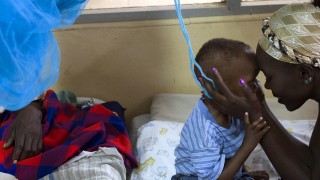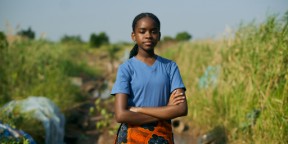World Malaria Report 2018: Progress and Peril
World Malaria Report 2018: Progress and Peril
Today’s release of the World Malaria Report 2018 tells two very different stories: the progress that more countries than ever are in a position to eliminate and; the peril that gives us a stark reminder that elimination is possible but not inevitable.
This post lays out the main takeaways from this year's World Malaria Report:
- Progress: Seven million lives have been saved since 2000, that’s a 60% reduction of malaria cases and deaths. The report shows that the efforts to fight malaria from countries like India, Rwanda, Ethiopia and Pakistan have been successful, the tide is turning, cases are slowly but surely reducing. India in particular shows a growing success story reducing its burden by 24%!
- Peril: The outlook isn’t quite so bright for the highest burden countries. In fact, we are seeing signs of funding stalling, and cases starting to increase. The report also highlights that 50% of people in Africa are sleeping without an insecticide-treated mosquito net – the main tool used to protect families against malaria. But the scariest fact to come out of the report is that, without increased resourcing, we’re off track to end malaria.
Nobody should die from malaria. But the world faces a new reality: as progress stagnates, we are at risk of squandering years of toil, investment and success in reducing the number of people suffering from the disease... We recognise we have to do something different – now. So today we are launching a country-focused and -led plan to take comprehensive action against malaria by making our work more effective where it counts most – at local level.
The facts and stats:
Despite the stall in progress, you can’t ignore the success stories that have emerged from some malaria-affected countries over the last year:
- India has reduced its disease burden by 24%
- Rwanda recorded 430,000 fewer malaria cases in 2017 than last year
- Ethiopia and Pakistan marked decreases of over 240,000 cases over the same period
- China and El Salvador have reported zero cases of malaria for the first time
- Paraguay became certified malaria-free by WHO this summer
This gives us huge encouragement. We have the tools and the know-how to end malaria, we can end it in our generation but we should not assume this is a done deal, we need concerted, country-led action to make this happen.
Peril will not prosper!
The World Malaria Report 2018 outlines that the biggest challenge we're facing is ensuring high-burden countries get back on track. As it stands, the world is off track to achieve the WHO target of reducing malaria deaths and disease by at least 40% by 2020 but with the power of partnerships shown by commitments made over the last year and with the a new country driven approach – “High Burden to High Impact”- launched alongside the report today, we can reignite progress. Here's a snapshot from the World Malaria Report that highlights where we need to heighten our efforts in the malaria fight:
- The toll of malaria remains unacceptably high, with more than 200 million new cases of the disease reported each year.
- During the 2015-2017 period, no significant progress was made and, in some countries, malaria is on the rise.
- In 2017, there were an estimated 3.5 million more cases of malaria than the previous year in the 10 highest-burden African countries: Burkina Faso, Cameroon, Democratic Republic of the Congo, Ghana, Mali, Mozambique, Niger, Nigeria, Uganda and United Republic of Tanzania.
- Seven out of these 10 countries are in the Commonwealth.
Over the next five years, Malaria No More UK is working to make sure the commitment to halve malaria in the Commonwealth, made at the Malaria Summit earlier this year, is realised and we get back on track to reach the goals set out by WHO.
The Malaria Summit and Commonwealth Heads of Government Meeting in April were timely interventions in the malaria fight to galvanise political and financial contributions needed to boost momentum and to help get the world back on track. Malaria No More UK is working with partners across the global malaria community, alongside the new ‘High Burden High Impact programme’ to ensure the commitment to halve malaria in the commonwealth – is delivered and can help get the world back on track.
The World Malaria Report shows a tale of progress and peril. Countries like Rwanda and India are winning their malaria fight, but others are seeing cases and death rise. These countries face an even tougher fight ahead unless urgent action is taken to accelerate investment in ending malaria for good.
This year, at the Malaria Summit London, the UK Prime Minister and 52 other world leaders committed to halving malaria across the Commonwealth within the next five years. Today's report shows that malaria endemic countries can and must take ownership of this commitment – and deliver it. Hundreds of millions of parents should not have to put children to bed in fear of malaria-carrying mosquitoes, when bed nets and treatment are so inexpensive.






